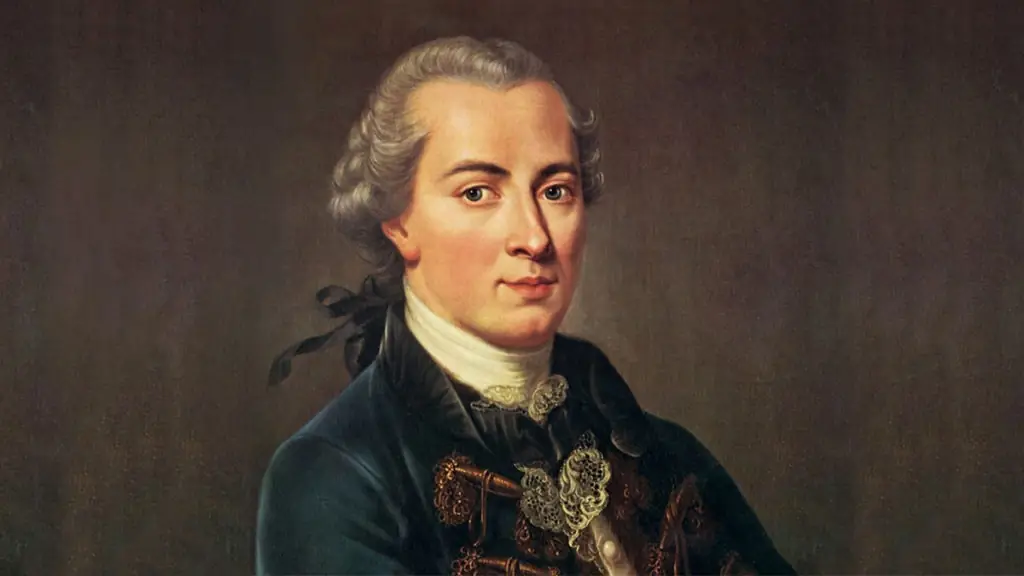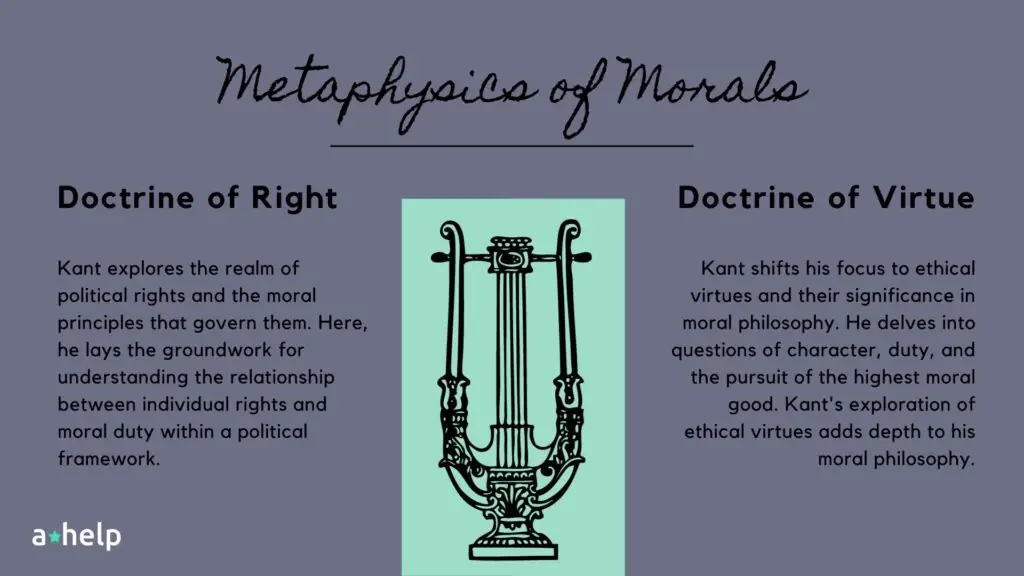Immanuel Kant, a renowned philosopher of the 18th century, left an indelible mark on the field of ethics and moral philosophy. His work, “Metaphysics of Morals,” stands as a testament to his profound insights into the intricate web of human morality. In this article, we will delve into the life and contributions of Immanuel Kant, unravel the structure and historical context of his masterpiece “Metaphysics of Morals,” and explore its key concepts and principles, including the Doctrine of Right and the Doctrine of Virtue.

✅ AI Essay Writer ✅ AI Detector ✅ Plagchecker ✅ Paraphraser
✅ Summarizer ✅ Citation Generator
Immanuel Kant: Brief Biography
Immanuel Kant, born in 1724 in Königsberg, Prussia, is hailed as one of the most influential philosophers in Western thought. Kant’s philosophical journey began with his deep interest in metaphysics, epistemology, and ethics. He introduced the world to the notion of the “categorical imperative,” a moral principle that transcends individual desires and emotions, emphasizing the importance of duty and rationality in ethical decision-making.

Kant’s contributions to philosophy encompass a wide array of fields, from metaphysics to aesthetics. However, his moral philosophy, as expounded in “Metaphysics of Morals,” remains a cornerstone of his legacy, shaping contemporary discussions on ethics and morality.
Structure of “Metaphysics of Morals”
Before delving into the content of “Metaphysics of Morals,” it is crucial to understand the structure of this seminal work. Kant’s “Metaphysics of Morals” is a comprehensive exploration of moral philosophy, divided into two distinct sections: the Doctrine of Right and the Doctrine of Virtue.
The historical context in which Kant penned this masterpiece is crucial. Written in 1797, during a period of political upheaval and enlightenment ideals, Kant’s work aimed to provide a solid philosophical foundation for morality and ethics. It was a time when the world was grappling with questions of political rights, ethics, and the nature of virtue.

Key Concepts and Principles
“Metaphysics of Morals” introduces several key concepts and principles that are central to Kant’s moral philosophy. Among these, the categorical imperative stands out as a foundational idea. Kant argues that individuals should act according to maxims or principles that could be universalized, meaning they could be applied as a moral law for all rational beings. This principle emphasizes the importance of acting based on duty rather than personal inclination.
Moral duty, another crucial concept, is defined by Kant as the obligation to act in accordance with the categorical imperative. Duty transcends personal desires and emotions, and it is the cornerstone of ethical decision-making in Kant’s philosophy.
Kant’s emphasis on rationality and the universality of moral principles underscores the enduring relevance of “Metaphysics of Morals” in contemporary ethical debates.
The Doctrine of Right
The first section of “Metaphysics of Morals,” the Doctrine of Right, dives into the realm of political rights and the moral principles that underpin them. Kant’s philosophy in this section revolves around the idea that political rights are grounded in moral principles. He argues that individuals possess certain inherent rights, and these rights should be protected and respected within a just society.
Kant’s exploration of political rights and ethical principles in the Doctrine of Right provides a profound philosophical foundation for understanding the relationship between politics and morality. His emphasis on individual rights and rationality has had a lasting impact on discussions about political ethics.
The Doctrine of Virtue
In the second section of “Metaphysics of Morals,” the Doctrine of Virtue, Kant shifts his focus to ethical virtues and their significance in moral philosophy. Here, he explores questions related to character, virtue, and the highest moral good.
Kant’s examination of ethical virtues goes beyond mere duty and obligation. He emphasizes the importance of cultivating virtuous character traits and striving for moral excellence. Kant’s insights into the nature of virtue contribute to a deeper understanding of ethics and the human capacity for moral growth.
Conclusion
Immanuel Kant’s “Metaphysics of Morals” stands as a monumental work in the history of philosophy, offering profound insights into ethics, morality, political rights, and virtues. Kant’s emphasis on rationality, duty, and universal principles continues to shape contemporary ethical debates and remains a cornerstone of moral philosophy. As we reflect on Kant’s enduring legacy, we recognize the enduring significance of his “Metaphysics of Morals” in the exploration of human morality and ethics.
FAQ
Follow us on Reddit for more insights and updates.





Comments (0)
Welcome to A*Help comments!
We’re all about debate and discussion at A*Help.
We value the diverse opinions of users, so you may find points of view that you don’t agree with. And that’s cool. However, there are certain things we’re not OK with: attempts to manipulate our data in any way, for example, or the posting of discriminative, offensive, hateful, or disparaging material.